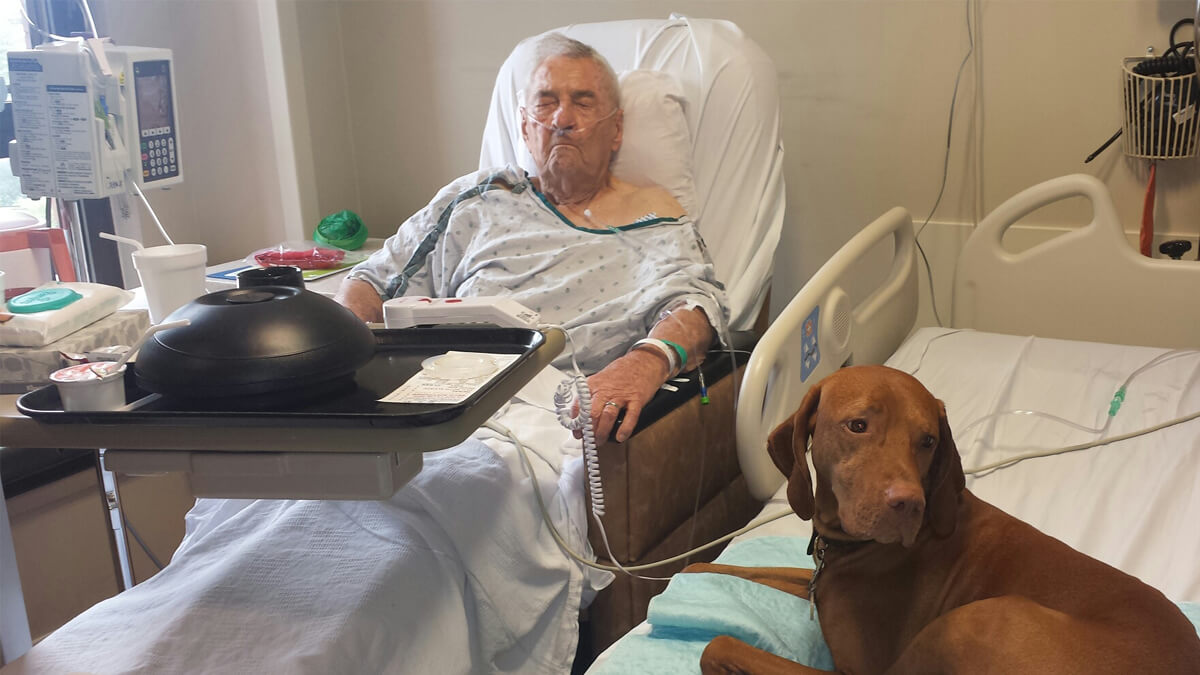There is a well-known quote that says, “Whoever said that diamonds are a girl’s best friend never owned a dog.”
This quote rings true loud and clear for Erin Danzer, a 23-year-old woman living in Oceanside, California. Danzer was born with an extremely rare genetic medical condition known as fibrodysplasia ossificans progressiva. As a result of her condition, Erin uses a wheelchair and has limited mobility in many areas of her body, including her arms and legs.
Danzer decided to begin the process of obtaining a service dog as her condition progressed. Due to her limited range of motion, she experienced difficulties with opening doors, picking up objects from the floor and other basic activities of daily living.
“After I began using a wheelchair full-time, I noticed these things became basically impossible for me to achieve on my own,” Danzer said. “I didn’t like the idea of having a caregiver or family member following me around all the time, so I decided to research service dogs and how they might be able to help me.”
Danzer obtained her service dog, Pine, through Canine Companions, a nonprofit organization that trains and provides service dogs free of charge to individuals with disabilities. Pine was trained to assist Danzer with the specific tasks she needs assistance with, including turning lights on and off.
“He even helps me pay for things when I’m out if I can’t reach the register,” Danzer said. “Eventually, as my FOP progresses, I’ll be able to utilize him for more tasks that I’ll need help with down the road.”
Although Pine is trained as a service dog as opposed to a therapy dog, he also helps Danzer with the nonphysical aspects of her life, including emotional support and companionship. If Danzer is having a difficult day or struggling emotionally, she turns to her dog as a source of comfort.
“Pine has a huge personality,” she said. “Not only does he help me with basic tasks, he also makes me smile and laugh all the time.”
In addition to Canine Companions, there are many organizations across the country that provide service dogs and therapy dog services to eligible individuals. One such organization is Paws 2 Care, a volunteer group based in South Carolina.
Paws 2 Care was founded by Sherry Anderson, who started the group nearly 30 years ago. During that period, Anderson and her staff of volunteers have brought their therapy dogs to visit with individuals in hospitals, schools, retirement homes and hospice facilities.
“When the therapy dogs come in, they forget about all the problems, stress and issues they have and concentrate on the dogs,” Anderson said. “The afternoon after we come, all the patients are in a better mood.”
Anderson was motivated to form her organization after realizing that she wanted to share her love of dogs with others. She also knew the significant impact that therapy dogs could have on those struggling with medical conditions ranging from post-traumatic stress disorder to illnesses such as cancer and Alzheimer’s.
“I was walking with my dogs and got on my knees and asked the Lord to help me give back what I have using my dogs,” Anderson recalled. “Since then, I have cried so many times on the way home from how the dogs have touched someone we visited.”
According to Anderson, a therapy dog is especially helpful for veterans who are dealing with PTSD, anxiety and depression. The animals are trained to help people relax and stay calm. They also have a special way of helping the person feel safe when they have a panic attack or other emotional episode.
While Anderson’s group primarily provides services in the Upstate of South Carolina, there are several similar organizations in other areas of the state. The Service Dog Institute is based in Greenville and provides service dogs to all of South Carolina, while Canine Companions places dogs throughout the entire United States.
Additionally, more than one-third of dogs released from service dog training through Canine Companions have gone on to serve as therapy dogs.
For Danzer, the opportunity to obtain her service dog has drastically enhanced her quality of life.
“I think of Pine as my best friend,” she said. “He’s always with me 24/7, and just knowing he’s there gives me the sense that I’m never alone.”
By Holly M. LaPrade
